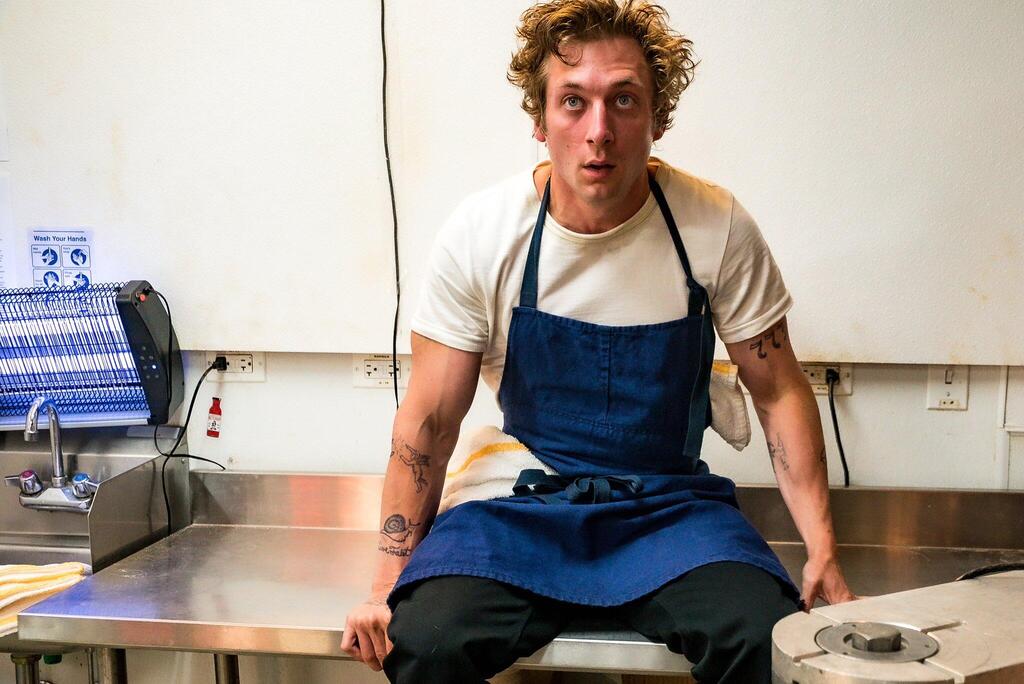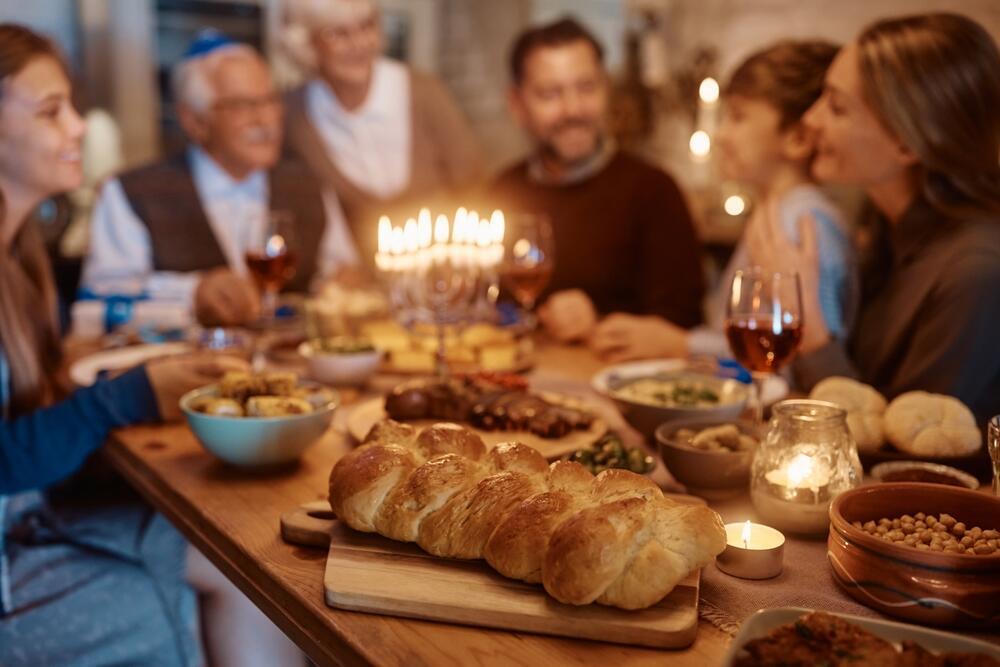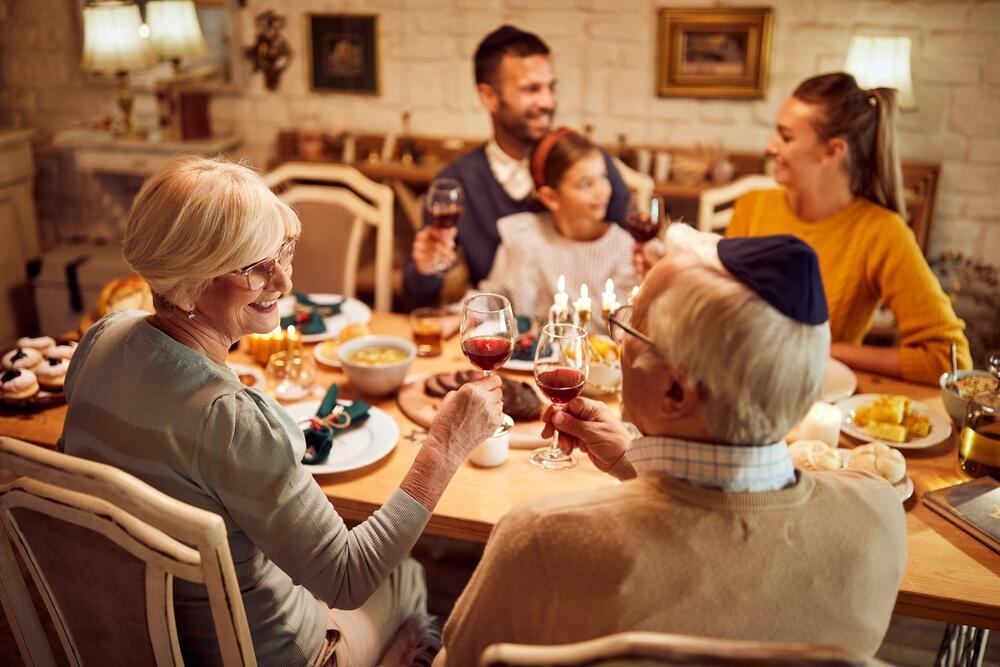Seven fish, not one more or less: This is the tradition celebrated in the second and final season of the TV series The Bear (Disney+). In an episode set during Christmas, Carmy's mother, Donna Berzatto, portrayed by Jamie Lee Curtis, prepares a lavish meal centered around seven fish, part of a traditional Italian-American celebration that originated in Southern Italy.
Read more:
The "Feast of the Seven Fishes" is a tradition celebrated every Christmas in the Berzatto family, and it must be followed precisely without exceptions. When one family member, Pete, dares to bring a tuna dish he made into the kitchen, he is immediately chastised by the family. Within minutes, the box containing the extra fish is thrown out of the house. You cannot bring an eighth fish to the feast. There are seven fish. That's the tradition.
Tradition is a practice that makes us feel like we are part of a community, seen and understood. Prof. Hizky Shoham from Bar-Ilan University has studied various rituals, including the barbecue tradition consistently celebrated on Independence Day. He defines tradition as "a custom we think and feel has lasted over time, even though that may not be historically true." According to him, tradition is important because "in a changing world, tradition provides a stable line for family identity."
Just like the Berzattos in The Bear, who honor and celebrate their Italian roots through the tradition of seven fish, many family traditions revolve around culinary events. In the Family Food Traditions podcast, American host Lauren Taylor recreates recipes from around the world and talks to amateur (and not-so-amateur) chefs who invest in preparing dishes they learned from their family elders.
Taylor, who is Jewish, shares the recipe for the challah bread she makes for her family every Friday afternoon, following her mother's recipe. She's made a small modification: instead of braiding six strands, she braids three. Six is too much work, and three is good enough in her opinion.
The small changes we make to traditions prove that tradition is not "greater" than us, but rather a practice that is always subject to change. "Tradition is something flexible, mutable, with room for choice," concurs Prof. Shoham.
"It's much more flexible than we think and not something from the past that we can't touch. Whether we like it or not, we're always changing our traditions. When you're cooking grandma's food, there are changes, even on a technological level: Grandma used to chop the meatballs with her hands, and we use a blender. This applies to recipes as well as to leisure activities and games—anything families do together—and also applies to religion and politics."
What are the traditions that the Israeli public has most widely adopted?
"For example, going on a family vacation every year. It's something people don't really question. As summer approaches, the immediate questions are 'where, who, when and how,' not 'if.' It's a consumerist tradition of leisure culture."
Why do we need this?
"It helps us remember that we are a family. In the modern age, we need the dimension of continuity and time precisely because the world is changing rapidly. We look for things that are ostensibly 'ancient' or 'traditional,' that have stood the test of time, and we define ourselves by them."
How has the importance of tradition in the family changed over the years?
"In the modern era, there has been a decline in family tradition. For example, on Passover Seder night, most families get their Haggadahs from supermarkets or newspapers, and all families use the same Haggadah, regardless of their community."
Overcoming cynicism
Not everyone is content with a Passover Haggadah from the supermarket—some families have chosen to enrich existing traditions. Sarah Shadmi Wortman created a special Haggadah for the Seder that combines elements from the kibbutz Haggadah and the traditional Haggadah, along with her own family's additions that she created herself.
This Haggadah is part of a lavish Passover Seder that has gained far-reaching recognition, much like other well-known family ceremonies. Shadmi Wortman, 61, a mother of four, a faculty member at Oranim College and the founding CEO of the Vered Center for Community Building. Along with her husband, Alon Shadmi, they have established many family traditions.
Shadmi Wortman drew inspiration for founding these traditions from her profession in community building, as well as from the family in which she grew up. Her mother, a Holocaust survivor, did not celebrate Jewish holidays. According to her, from the moment she started her own family, she knew it was important to create unique traditions for her new household.
"The moment we started a family, it was clear to me that I wanted a Jewish but not Orthodox home, and that I wanted to create something that is our own. That is to say, our family traditions are from the Diaspora, from the family that came here after the Holocaust."
In the Shadmi Wortman household, any change is a cause for celebration, honoring the present while invoking memories of the past. All life cycles and seasons of the year are marked with specific ceremonies: birthdays are celebrated with much creativity, Jewish holidays and Sabbath dinners are observed, as well as weddings and housewarmings. Everything is celebrated in specific ceremonies filled with meaning. All family members are present at every ceremony, and no one is exempt, regardless of age.
"Through our traditions, family members understand who they are in the world. They are happy and proud to be a part of this family because of these traditions. It defines a particular set of values," she explains.
Some of the rituals have been carried over from previous generations, and many new customs she has invented herself. She's not content with the rich repertoire of existing traditions and is already planning new ones, especially for her children's future engagements. Each tradition maintains a stable structure, but the content changes and evolves over the years.
A common theme to the various traditions that Shadmi Wortman describes is inclusiveness and attentiveness, sharing the good and jointly celebrating it. "On birthdays, we have an Ashkenazi tradition from my grandmother of pulling on the upper part of the earlobe. It's considered good luck. I added to it my own twist: the child shares something good about each year of their life. It's a way to say that everything about you interests us, and we want to hear about it," she elaborates.
"After sharing, we pull on the ears. We pull one ear, then the other, and then bless the person. It doesn’t matter if it’s my 90-year-old mother or a 16-year-old; we all participate in pulling ears."
Another tradition is the "What’s Up?" custom, in place for 34 years since the birth of her eldest son, Amir. Every Friday evening, the extended family, comprising around thirty people, gathers around the table. Each person shares one good thing that happened to them during the past week.
"It's an intergenerational conversation that includes our parents, us, and the children," she explains. "The idea is that whatever happens to you is important to us and interests us. Additionally, it broadens the scope of the connection among cousins. That's the power of ritual: it shapes the world of values and the nature of relationships."
In the early years of implementing the various traditions, Shadmi Wortman had to insist on their existence and confront resistance. "It was a big challenge because our parents were cynical about it. It was a years-long journey. Initially, the reactions were like, 'Oh, can we just get this over with?' Amir wouldn’t participate. 'Can't we just meet up?' he would say. At first, I thought maybe they were right, but then I saw that the family both needs and wants these traditions. I clarified that they could choose their level of participation, but it’s happening regardless."
Have you noticed changes in attitudes toward family traditions over the years?
"The next generation, our children and nephews and nieces, are not giving it up. After 25 years, I thought maybe we could let it go, but they wanted it back. The next generation is helping me shape the holiday receptions. The songs they bring are contemporary, ones I wouldn't have chosen. This makes me happy and excited. They are doing something 'new yet sacred,' adapting it to today."
Using holidays as a tool
Effective family traditions contribute to a sense of belonging and security. Repeating a ritual that we are well-acquainted with, which is predictable and safe, gives us something to look forward to.
How can we redesign our existing family traditions or create entirely new ones? First, it's worth examining the traditions we already have, even if we aren’t consciously aware of them. We should ask ourselves: Do they align with our values? Are they suitable for all family members, or do they create tension? Do they authentically represent who we are as a family?
"We have more traditions and rituals than we think," explains Dr. Sharon Peleg, a community psychologist at Maccabi Health Services. "In our daily lives, there are many routines and repetitions that assist us. For example, brushing teeth before bed and singing together is also a ritual. It's important to know that stability and belonging are crucial in a world filled with tension and stress. This is true not only for our children but also for us."







